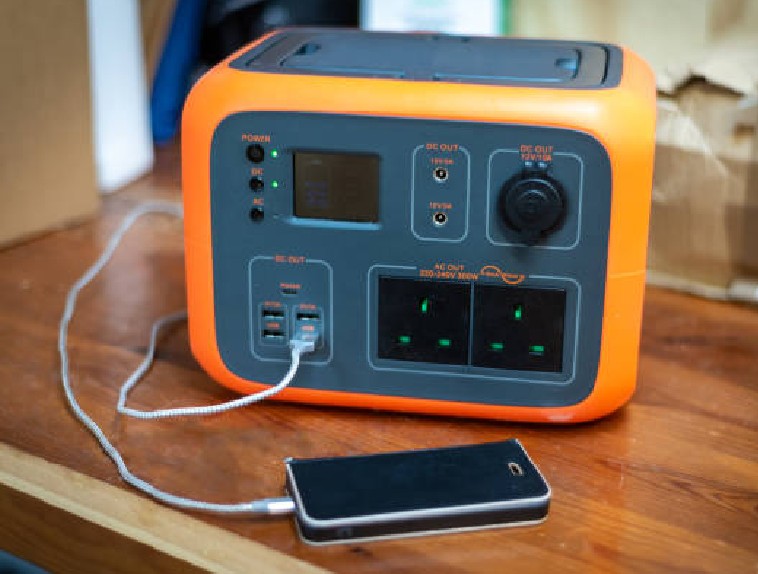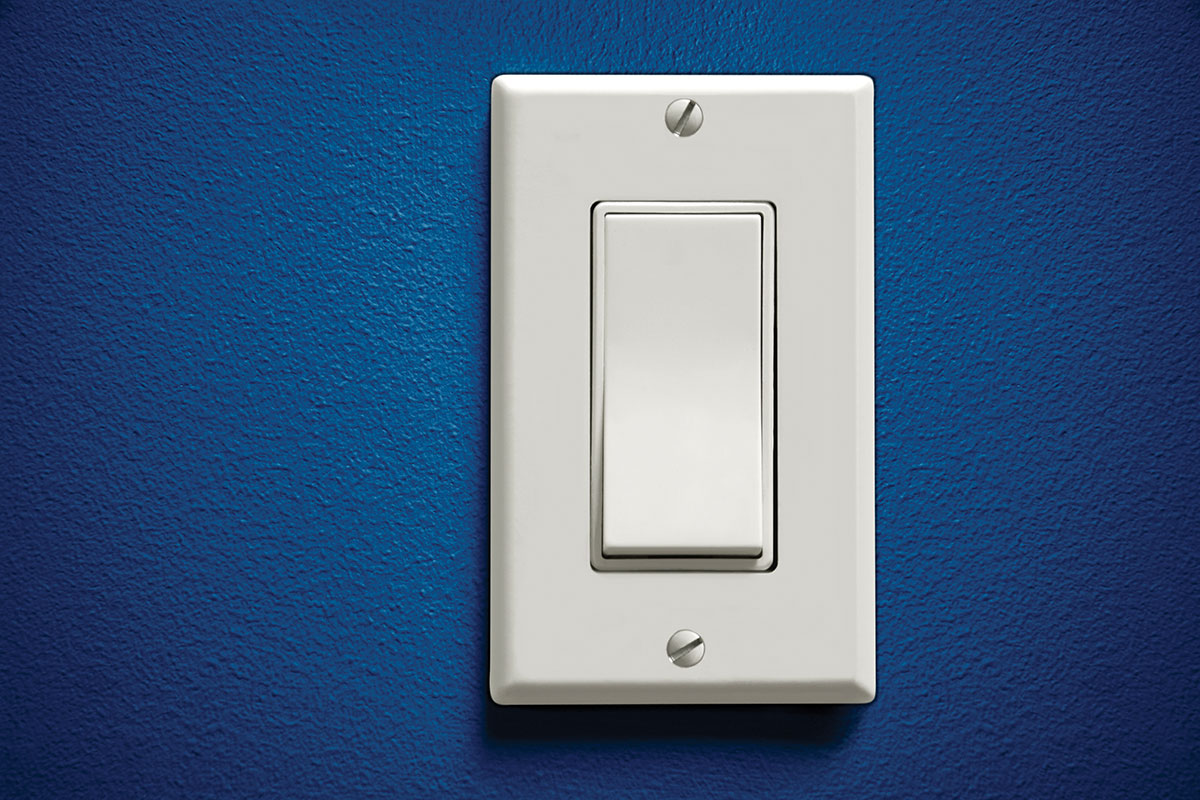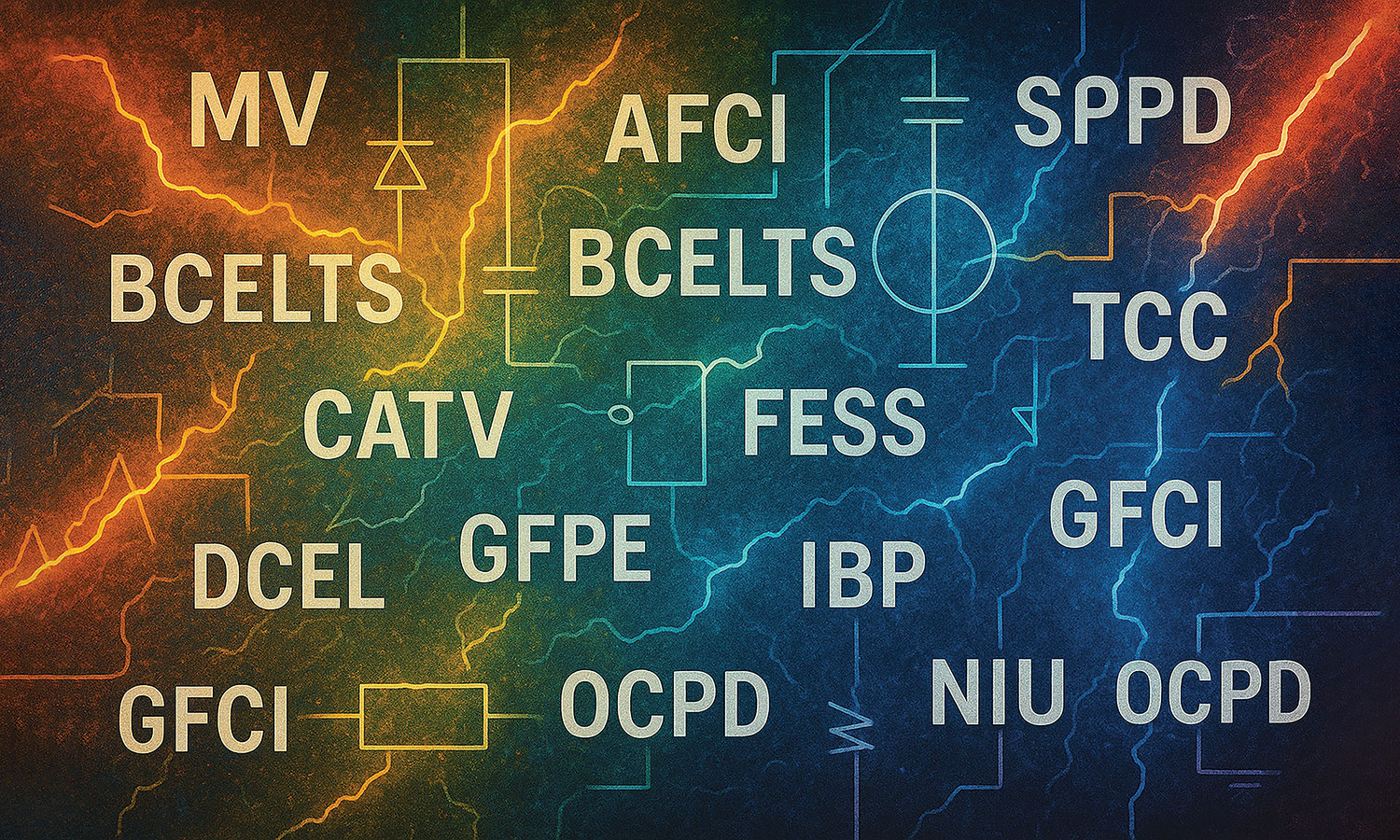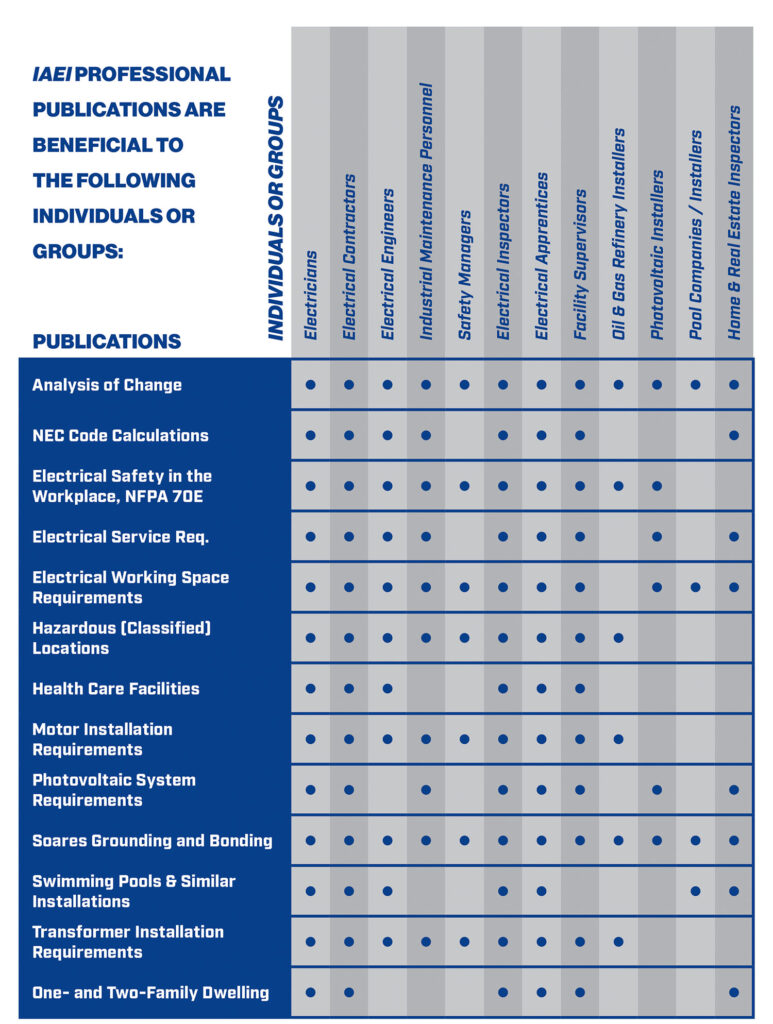Staying current in the electrical industry is an important responsibility that is vital to public safety. Knowing the National Electrical Code© and what to do could mean the difference between keeping people safe and causing fire and death due to improper installation. When it comes to learning safe electrical installation and practices, contact IAEI and receive the best quality electrical education in the industry. IAEI seminars are taught by nationally recognized electrical industry experts who participate in the development of the NEC as members of the NEC code-making panels.
Analysis of Changes
Learn the essential changes to the 2020 or 2017 edition of NFPA 70, National Electrical Code (NEC). Don’t let a change in Code catch you unaware! Reviewed by NFPA, this comprehensive book is a must-have resource you will reference throughout the years. It highlights and explains revisions to residential, commercial, and industrial design and installation requirements and is written with input from IAEI code-making panel members. After taking this course, the participant will be able to:
- Have an increased awareness of important changes to the NEC.
- Understand the background information about why the specific change occurred.
- Comprehend how the changes discussed will affect electrical installations in your specific working environment.
| Available On-Demand Seminar | Instructor | CEU |
| Analysis of Changes, 2020 NEC | Keith Lofland | 0.4 |
| Analysis of Changes, 2020 NEC, 4-Part Seminars | Keith Lofland | 0.15 Each |
| Analysis of Changes – 2020 NEC (Commercial/Industrial Location Changes) | Paul Dobrowsky | 0.15 |
| Analysis of Changes – 2020 NEC (Random Order) | Keith Lofland | 0.4 |
| Analysis of Changes, 2017 NEC, 4-Part Seminars | Keith Lofland | 0.15 Each |
| Analysis of Changes – 2020 NEC (Chapter 4) | Mark Earley | 0.1 |
| Analysis of Changes – 2020 NEC (Chapter 2) | Mark Hilbert | 0.1 |
IAEI’s Motor Installation Req.
Based on the NEC, this presentation will explain motor Code structure in clear, concise language involving installation, design, and inspections of these installations. Article 430 is covered in-depth in this presentation, as well as portions of Article 110 and 250. Examples and basic motor calculations are reviewed. After taking this course, the participant should have a greater understanding of:
- Working space around motors and controllers
- Wiring methods, motor control centers, adjustable speed drives, and overcurrent protection requirements
- Grounding and disconnect requirements
- Proper protection techniques to prevent motor overload and damage
| Available On-Demand Seminar | Instructor | CEU |
| Motor Installations, 2020 NEC | Joseph Wages, Jr. | 0.15 |
| Motor Installations, 2017 NEC | Mark Hilbert | 0.2 |
IAEI’s Soares Grounding and Bonding
During this seminar, you will better understand the general concepts of grounding and bonding as it applies to electrical systems. The NEC requirements for grounding of systems, services, feeders, branch circuits, and equipment will be clarified. Review requirements for special occupancies such as health care facilities, agricultural buildings, hazardous (classified) locations, and swimming pools and how to install or inspect the grounding and bonding associated with separately derived systems. After taking this course, the participant should have a greater understanding of grounding and bonding associated with:
- AC and DC electrical systems
- Grounding of separately derived systems
- Grounding and bonding associated with services, feeders, branch circuits
- Grounding and bonding requirements for equipment
- Grounding and bonding for special occupancies
| Available On-Demand Seminar | Instructor | CEU |
| Soares Grounding and Bonding, 2020 NEC | Keith Lofland | 0.4 |
| Grounding and Bonding of Separately Derived Systems | Chuck Mello | 0.15 |
| Connecting to Earth – The Grounding Electrode System | Keith Lofland | 0.15 |
| Soares Grounding and Bonding: Basic Definitions | Paul Dobrowsky | 0.15 |
| Soares Grounding and Bonding – 2020 NEC Changes | Keith Lofland | 0.4 |
| The Fundamentals of Grounding and Bonding | Chuck Mello | 0.2 |
| Soares Grounding and Bonding, 2020 NEC | Chuck Mello | 0.8 |
| Grounding Electrode System | Keith Lofland | 0.15 |
IAEI’s Swimming Pools and Similar Installations- NEC 680
Shock hazards in and around a swimming pool can result from faulty electrical equipment directly associated with the pool or from faulty electrical equipment not associated with but in close proximity to the pool. The training takes an in-depth look at the explicit requirements for the unusual combination of water and electricity in NEC Article 680. The installations covered by this seminar can be indoors or outdoors, permanent or storable, all with their own distinctive electrical requirements. After taking this course, the participant should have a greater understanding of requirements associated with Article 680, including:
- Grounding, bonding, and equipotential bonding requirements
- Specialized pool equipment
- Permanently installed pool requirements
- Storable pool requirements
- Spa, Hot Tub, Therapeutic pools, and tubs, and Hydromassage bathtub requirements
- Fountain installation requirements
- Boat Yards and Marinas
| Available On-Demand Seminar | Instructor | CEU |
| Swimming Pools | Keith Lofland | 0.4 |
| Swimming Pools – General Requirements | Jim Rogers | 0.1 |
| Boatyards and Marinas – Electrical Safety and Avoiding Electric Shock Drowning | Keith Lofland | 0.1 |
IAEI’s One- & Two-Family Dwelling Electrical Systems
This course is particularly helpful and valuable for individuals interested in making more accurate, thorough, and safe installations and inspections of one- and two-family dwellings. It will help you understand the various specific NEC and International Residential Code (IRC) requirements on the unique applications of a dwelling unit and its changes to apply to one- and two-family dwelling electrical systems. After taking this course, the participant should be able to:
- Know the NEC general requirements and the 2017 NEC (and 2020) changes as they apply to one- and two-family dwelling electrical systems.
- Apply information received to branch circuit and feeder calculations, grounding, services, swimming pools, overcurrent protection, and devices such as ceiling fans, receptacles, and luminaires.
- Design and apply installation and inspection practices according to safety provisions in the NEC and the electrical requirements of the IRC.
| Available On-Demand Seminar | Instructor | CEU |
| One- and Two Family Dwelling System, Part 1 | Keith Lofland | 0.15 |
| One- and Two Family Dwelling System, Part 2 | Keith Lofland | 0.15 |
| Dwelling Units: Kitchen Countertop and Other Receptacle Requirement | Joseph Wages, Jr. | 0.15 |
| Personnel Protection for Dwelling Units | Keith Lofland | 0.15 |
| Residential Real Estate Inspectors – Electrical Topics | Keith Lofland and Joseph Wages, Jr. | 0.15 |
| Residential Construction Superintendents – Rough-In Inspection Topics | Keith Lofland and Joseph Wages, Jr. | 0.15 |
| Receptacle Wall Spacing Requirements within Dwelling Units | Keith Lofland | 0.15 |
IAEI’s Electrical Working Space Req.
This course primarily covers NEC Article 110 regarding working spaces around electrical equipment (for example, services, panelboards, disconnects, transformers, and motors). These spaces are critical for equipment to be maintained in a safe manner. After taking this course, the participant should have a greater understanding of working spaces associated with:
- Electrical equipment in indoor and outdoor locations
- Services, panelboards, and disconnects
- Motor control centers
- Transformers and motors
- Electrical Equipment Rooms
- Dedicated electrical spaces
| Available On-Demand Seminar | Instructor | CEU |
| IAEI’s Electrical Working Space Requirements |
David Humphrey | 0.15 |
IAEI’s Photovoltaic System Req.
Learn about the requirements and updates in Article 690 of the NEC regarding photovoltaic (PV) systems. The material covered includes topics such as types of systems, disconnecting means locations, connections to the utility, requirements for ground-mounted and roof-mounted systems, equipment ratings, and grounding and bonding of photovoltaic systems. After taking this course, the participant should have a greater understanding of:
- Installation requirements for arrays on rooftops
- Disconnecting means and locations and rapid shutdown requirements
- Wiring methods
- Grounding and bonding requirements
- Inverters, arrays, and photovoltaic equipment
- Connections between the PV system and the utility
| Available On-Demand Seminar | Instructor | CEU |
| Photovoltaic Power Systems, Part 1 | Jim Rogers | 0.15 |
| Photovoltaic Power Systems, Part 2 | Jim Rogers | 0.15 |
| Photovoltaic Systems – The Rapid Shutdown System and Rooftop Arrays | Jim Rogers | 0.1 |
| Photovoltaic Power Systems – The Basics | Pete Jackson | 0.1 |
IAEI’s Health Care Facilities
This seminar provides the basic requirements and structure of the NFPA 99, Standard for Health Care Facilities. It looks into the history of NEC Article 517. This introductory material has been developed to promote greater understanding and efficiency in electrical safety for electrical systems associated with health care facilities. After taking this course, you will be able to:
- Gain a thorough understanding of the technical and Code requirements
- What qualifies as a facility that is subject to Article 517 and NFPA 99
- Understand requirements for communications, signaling systems, data systems, fire alarm systems, and systems less than 120 volts, nominal
- The need for isolated power systems as it pertains to patient and staff safety
- Understand the Essential Electrical System
| Available On-Demand Seminar | Instructor | CEU |
| Health Care Facilities | Mark Hilbert | 0.15 |
IAEI’s Electrical Safety in the Workplace, NFPA 70E
NFPA 70E was developed to help companies and employees avoid workplace injuries and fatalities due to shock, electrocution, arc flash, and arc blast, and assists in complying with OSHA 1910 Subpart S and OSHA 1926 Subpart K. This course will provide training to companies/professionals to reduce exposure to major electrical hazards and protect their personnel. Attendees will learn to:
- Identify shock approach boundary distances
- Safety policies and procedure in place for the protection of personnel
- The Table method for various tasks regarding identifying when Personal Protective Equipment (PPE) is required
- To properly select PPE when an incident analysis has been performed
- Identify PPE category [formally hazard risk categories (HRC)] changes
| Available On-Demand Seminar | Instructor | CEU |
| NFPA 70E Basics | Mark Hilbert | 0.15 |
IAEI’s Common NEC Code Calculations
Whether you are an inspector or installer, you will typically perform a calculation related to the NEC in the day-to-day application of your responsibilities. This training helps you to enhance your general understanding of these common Code calculations that we sometimes take for granted. After taking this course, the participant should have a greater understanding of calculations associated with:
- Box Fill and Conduit Fill
- Sizing the Grounded Service Conductor
- Branch Circuits for Fixed Electric Space Heating Equipment
- Dwelling Unit General Purpose Lighting Load
- Ampacity Adjustment Correction Factors for Conductors
- Circular Raceway Installed on Rooftops
- Ampacity Calculations with Wire Terminations
- Ampacity Adjustment Factors for Type NM Cable
- Conductor Fill for Metal Wireways
| Available On-Demand Seminar | Instructor | CEU |
| Common Code Calculations, Part 1 | Keith Lofland | 0.15 |
| Common Code Calculations, Part 2 | Keith Lofland | 0.15 |
IAEI’s Electrical Service Req.
This seminar provides an overview of the major design issues and minimum NEC requirements related to electrical services. This material is primarily based on the requirements outlined in NEC Article 230 and includes grounding and bonding of services from Article 250. In this seminar, you will:
- Understand the various specific NEC requirements pertaining to the unique applications of service
- Apply information received to service and feeder calculations, working clearances, grounding and bonding, the grounding electrode system, and overcurrent
- Design and apply installation and inspection practices according to safety provisions in the NEC.
| Available On-Demand Seminar | Instructor | CEU |
| Electrical Service Requirements – The Basics (Part 1) | Keith Lofland | 0.15 |
IAEI’s Transformer Installation Requirements
Based on the NEC, this presentation will explain transformer Code structure in clear, concise language involving installation, design, and inspections of these installations. Article 450 is covered in-depth in this presentation, as well as portions of Article 110 and 250. Examples and basic transformer calculations reviewed include:
- Working spaces as they apply to transformers, disconnects, and panelboards
- Proper protection techniques to prevent transformer overload and
- Wiring methods, grounding, ventilation concerns, and overcurrent protection requirements
- Motor disconnecting means and their applications
| Available On-Demand Seminar | Instructor | CEU |
| Transformer Installations | Joseph Wages, Jr. | 0.15 |
IAEI’s Hazardous (Classified) Locations
This material is primarily based on the provisions outlined in the NEC relating to hazardous (classified) locations. These seminars clearly explain the fundamentals and critical requirements found in the hazardous (classified) environment. Core topics of discussion include:
- Understanding the fundamentals and concepts of vapor density, flashpoints, and flammable-combustible material as it applies to this environment.
- Become familiar with Class I, II, and III locations and the zone system of area classification.
- Special installation practices for grounding and bonding, sealing conduits, intrinsically safe systems, commercial repair garages, aircraft hangers, motor fuel-dispensing facilities, health care facilities.
| Available On-Demand Seminar | Instructor | CEU |
| Hazardous (Classified) Locations – Fuel Stations | David Humphrey | 0.15 |
| Hazardous (Classified) Locations – Classification of Areas and Locations | David Humphrey | 0.1 |
| Hazardous (Classified) Locations – Special Occupancies | David Humphrey | 0.15 |
| Hazardous (Classified) Locations – Wiring Methods | Paul Dobrowsky | 0.15 |
IAEI Ask the Inspector Series
We question local inspectors on common findings and procedures within their local jurisdictions.
| “Ask the Electrical Inspector” Available On-Demand Seminar | Instructor | CEU |
| Ask the Electrical Inspector- DFW Area | James Hawthorn and Joseph Wages, Jr. | 0.2 |
| Ask the Electrical Inspector- Philadelphia | Michal Hofkin and Joseph Wages, Jr. | 0.2 |
| Ask the Electrical Inspector – Waco, Texas | JD Locker, Chris Valtierra, and Joseph Wages, Jr. | 0.2 |
Digital Training Events — Proposed Topics for July through December 2021
Here are the proposed digital training event topics that IAEI will be working towards for the July through December 2021
- Electrical Terminations
- High Impedance Grounded Systems- 2020 NEC
- One- and Two-Family Dwelling Electrical Systems- 2020 NEC (various chapter of the book and topics discussed)
- High Voltage Electrical Systems
- Health Care Facilities- The Essential Electrical System
- Health Care Facilities- Receptacle Requirements
- Air Conditioning Installations- (working space, receptacle within requirements, branch circuit whips, GFCI protection, nameplate information)
- Analysis of Changes- 2020 NEC (various chapter of the book and their changes discussed)
- Electrical Service Requirements (Part 2)
- Electrical Service Requirements (Part 3)
- Swimming Pools- 2020 NEC (Part 2)
- Fountains and Similar Items- Article 680
- Becoming the Electrical Inspector
- Residential Real Estate Inspectors Topics (Part 3)
- Facility Managers and Supervisors Topics (Part 3)
- Residential Construction Superintendents- Rough-In Topics (Part 3)
- Ask the Electrical Inspector
IAEI’s Online Training allows you to learn at your own pace or live with an expert instructor, from the comfort of your laptop or PC. Choose topics from a full list of courses covering electrical topics that cover what you need to know from the NEC and other electrical codes and standards.
For a list of live seminars, visit https://www.iaei.org/page/digital-education
For on-demand seminars, visit https://www.iaei.org/page/ondemand-digital-education















Find Us on Socials